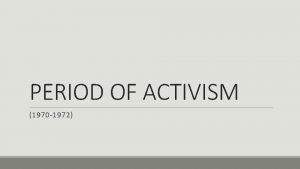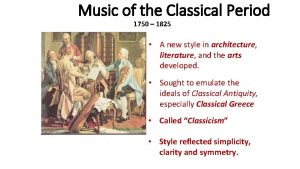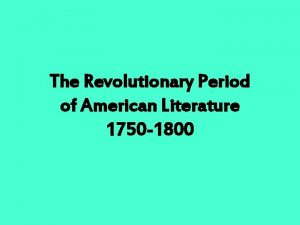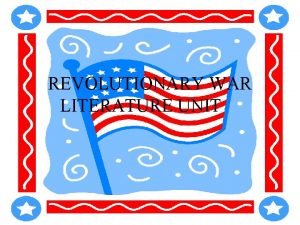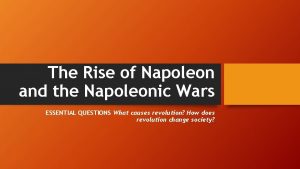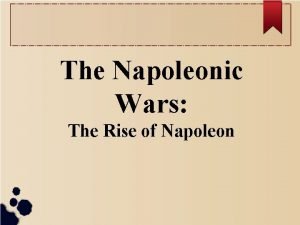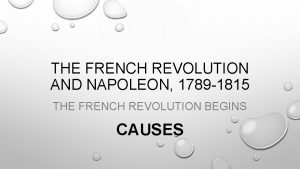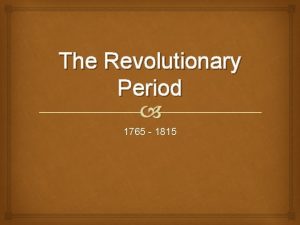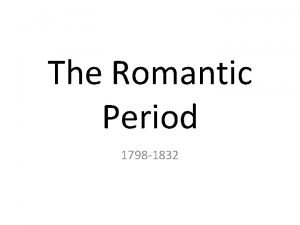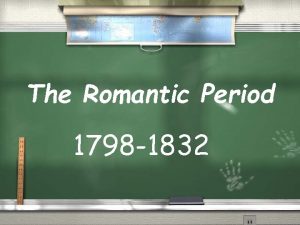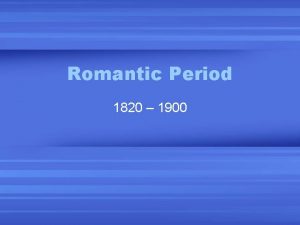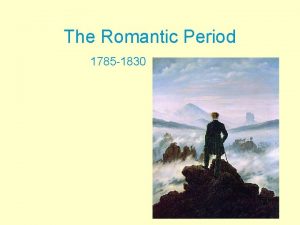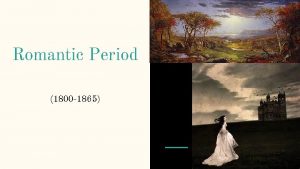The Romantic Period 1789 1815 Revolutionary and Napoleonic








- Slides: 8

The Romantic Period � 1789 - 1815 Revolutionary and Napoleonic period � 1807 British Slave Trade outlawed � 1811 - 20 The Regency: George, Prince of Wales, acts as regent for George III � 1819 Peterloo Massacre � 1820 Accession of George IV

Major Authors and Diversity �William Blake �William Wordsworth �Samuel Taylor Coleridge �George Gordon, Lord Byron �Percy Bysse Shelley �John Keats �Yet several authors, mainly women, were more popular early in the period: Anne Barbauld, Charlotte Smith, Mary Robinson �Older authors: Gray, Collins, Crabbe, and Cowper

Revolution and reaction �American Revolution 1776 �French Revolution 1789 �Reign of Terror 1804 �Napolean 1815 �Ongoing social pressure �Mary Wollstonecraft’s “A Vindication of the Rights of Man” �Edmund Burke “Reflections on the Revolution in France”

Industrial revolution � 1765 James Watts perfects steam engine �Rise of mill towns �Enclosures �Divisions into capital and labor �Laissez-faire economics �Child labor �Working Conditions �Fear of Revolution

The Spirit of the age �“Great spirits now on earth are sojourning” Keats �Lake Schools – Wordsworth, Coleridge, Robert Southey �Cockney Schools – Leigh Hunt, William Hazlitt, Keats �Satanic School – Percy Shelley, Byron �Revolution as apocryphal �Promise and Regret

Poetic theory and practice �‘The spontaneous overflow of powerful feelings” Wordsworth �First person lyric poetry and self reference �Bardic ideals and innovation �Romantic nature poetry �Personification of nature and landscape �Ordinary subjects �The supernatural, the romance, psychological extremes �Individualism and alienation

Writing in the Marketplace and Courts �By 1830 about half of Britain’s population was regularly reading �Working classes and Sunday school �Circulating Libraries �Steam engine printing presses �Books as big business �Fears of reading and readers �Pirated novels �Problematic attempts at censorship

Other literary forms �An era of prose? �Drama and disorder �The novel gains respectability
